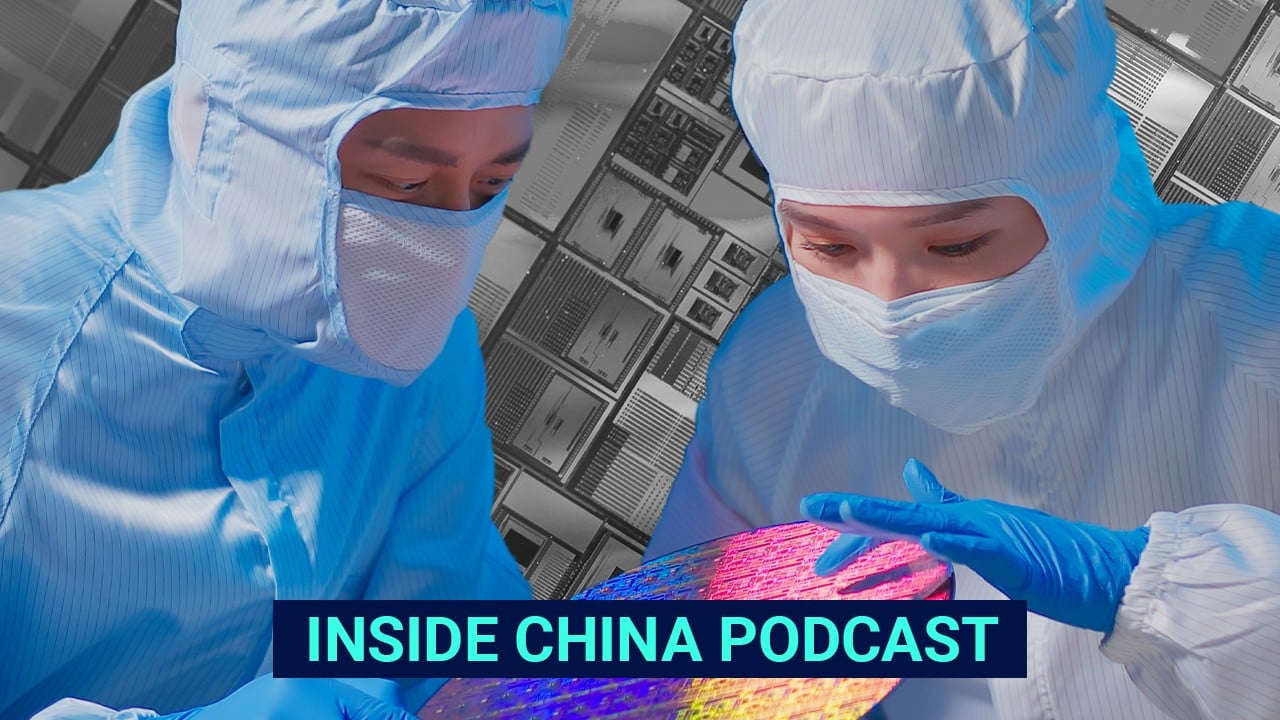The survey results will be available in the summer, with Vestager adding that they were basing their approach on the Japanese model of economic security. Researchers from the Stimson Centre have described the model as aimed at “securing the stability and safety of its people and society from attempts by major powers to achieve their political objective”.
“You find these existential or essential chips everywhere. So what criteria should they fulfil in order to be fit for purpose and safe to put in all these different appliances?” Vestager said.
EU and US seek trade and tech alignments that might survive Trump’s return
EU and US seek trade and tech alignments that might survive Trump’s return
At a press conference in Leuven, US Commerce Secretary Gina Raimondo said Washington was looking for “evidence of any kind of market distortion” in the sphere of legacy chips.
“We know that based on China’s own reporting, about 60 per cent of all new ‘legacy chips’ coming into the market in the next handful of years will be produced by China. And we know there’s a massive subsidisation of that industry on behalf of the Chinese government, which could lead to huge market distortion, and so that’s why we’re focused on it,” Raimondo said.
The final meeting of the TTC before elections in both the EU and US aimed to lock in progress on multiple fronts to make it harder for future political leaders to abandon the council.
The TTC was launched in 2021 and is broadly seen as a way for the West to compete with China in setting standards for technologies that will power the global economy of the future.
‘Legacy chips’ emerge as new front in US-China semiconductor battle
‘Legacy chips’ emerge as new front in US-China semiconductor battle
The TTC emerged as an important platform for coordinating on sanctions and export controls against Russia after its invasion of Ukraine in February 2022. On countering China, however, returns have been more modest.
A joint statement published after Friday’s event contained just three mentions of China, though it had multiple references to the challenges posed by “non-market economies” – shorthand for Beijing, whose economic policies frustrate governments on both sides of the Atlantic.
“There has been a build-up of global economic pressure through extensive non-market policies and practices,” the statement read.
EU sources said its member states were not “enthusiastic” about singling out Beijing in the document, earlier drafts of which had more references to the world’s second biggest economy.
During closed-door plenary sessions over the course of the two day meeting, US officials put China at the top of every statement and inserted it prominently into each debate, according to people present.
The Europeans, however, were less energised by the topic and preferred to avoid targeting specific countries in discussions.
Two of the mentions of China in the statement were related to concerns over market access for firms that make medical devices. Brussels has been pushing without success for Beijing to open its lucrative procurement market for these devices to European firms.
An EU investigation on China under its new international procurement instrument could land as early as next week, sources said.
“There is no reciprocity here. De facto the Chinese market is closed for European producers,” Vestager said, adding that it was important for the bloc to have the international procurement instruments as they were “built on the idea of reciprocity”.
The third mention was in relation to “China’s ability to effectively employ foreign information manipulation and interference” in the Western Balkans, where the EU and US are working with local partners to coordinate on these threats.
The forum took place at the Belgian city of Leuven, one of the EU’s major innovation hubs. On Thursday evening, EU and US officials toured the Interuniversity Microelectronics Centre, a nerve centre for European chip technology, which has cut China out of its research partnerships in recent months.
The sides agreed to coordinate on developing standards for 6G technology, quantum computing and artificial intelligence, with a view to ensuring China does not set the rules.
On less advanced technology, they said they would “explore ways to jointly support our [solar] photovoltaic manufacturing capacity and to diversify and de-risk this supply chain”.
On economic security – a hot-button issue for China policy in both Brussels and Washington – they agreed to swap notes on their respective outbound investment screening programmes, which have proved challenging to implement.
“When the EU and US are aligned, it’s a powerful force. There’s a certain weight that comes with having a shared position, whether that’s dealing with China or any other challenge,” said US Secretary of State Antony Blinken after the TTC meeting.
However, with both the EU and US heading into an election period that could significantly rearrange the existing political orders, many are doubtful the council has generated the momentum to survive.
"chips" - Google News
April 05, 2024 at 07:14PM
https://ift.tt/l8g614q
EU follows US move to assess China’s dominance of legacy chips - South China Morning Post
"chips" - Google News
https://ift.tt/vRi62O3
https://ift.tt/ts2PWz6
Bagikan Berita Ini















0 Response to "EU follows US move to assess China’s dominance of legacy chips - South China Morning Post"
Post a Comment